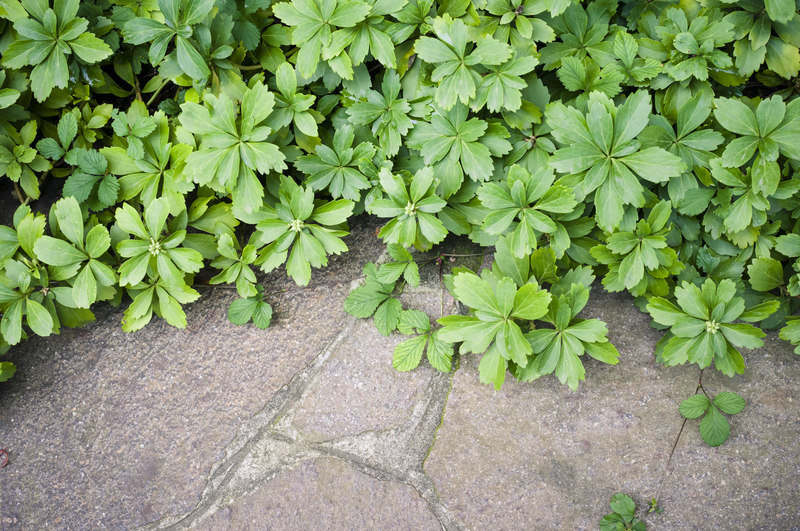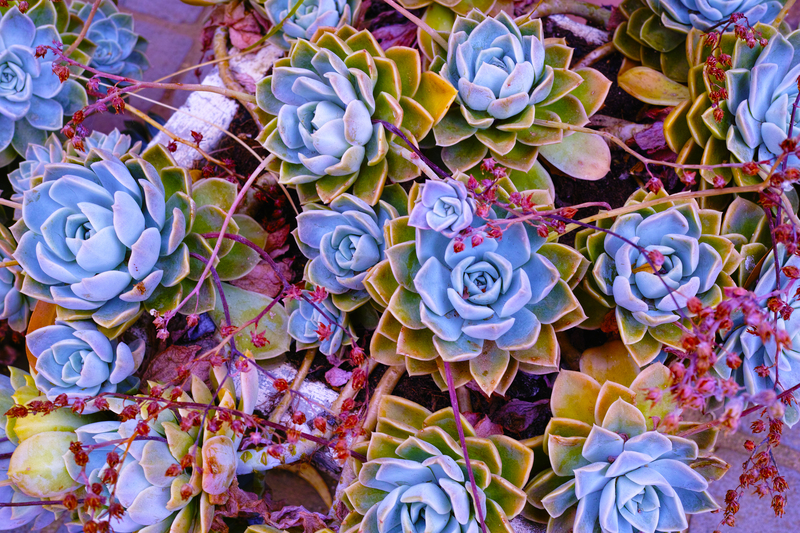Revolutionize Your Space with Vertical Gardens
Are you seeking an innovative and sustainable way to breathe new life into your home, office, or outdoor space? Vertical gardens--also known as living walls, green walls, and vertical plant installations--are taking the world of interior and exterior design by storm. These lush, vertically-growing gardens maximize limited space, purify the air, and add a unique visual aesthetic to any environment. In this comprehensive guide, we'll explore how to revolutionize your space with a vertical garden, highlighting the many benefits, design ideas, setup tips, and care instructions to set you on the path to your very own living wall paradise.
What is a Vertical Garden?
A vertical garden is a method of growing plants on vertically suspended panels using hydroponics, soil, or other growth mediums. Serving as living art, vertical gardens can be placed indoors or outdoors and are suitable for everything from small apartments to corporate environments. Different variations such as stacked planters, trellises, modular panels, and even pocket systems allow you to cultivate a botanical masterpiece tailored to your needs and tastes.
Main Types of Vertical Gardens
- Panel Systems: Modular panels where plants root in felt or pouches attached to the wall.
- Trellises and Climbing Structures: Support climbing plants on vertical frameworks.
- Pocket Holders: Rows of fabric or plastic pockets designed to hold individual plants.
- Stacked Containers: Planters arranged in a tiered manner to utilize height.
- Freestanding Vertical Garden Walls: Independent structures that don't require wall mounting.

Why Should You Choose a Vertical Garden?
Installing a living wall garden does more than add greenery to your decor--it transforms any area into a vibrant and healthy environment. Let's review the benefits of vertical gardens that make them such a game changer.
Key Benefits of Vertical Gardens
- Maximize Space: Vertical gardens enable you to grow more plants in a limited area, perfect for urban homes and small spaces.
- Improve Air Quality: Living walls naturally purify the air, absorbing pollutants and releasing oxygen.
- Thermal Insulation: Green walls help insulate buildings, reducing the need for artificial heating and cooling.
- Reduce Noise Levels: The foliage in vertical plant installations dampens sound, making interiors more tranquil.
- Enhance Well-Being: Being surrounded by plants has proven mental health benefits, including reduced stress and improved concentration.
- Aesthetic Appeal: Vertical gardens provide a stunning focal point, elevating visual interest and enhancing property value.
- Support Urban Biodiversity: Living plant walls can provide microhabitats for pollinators and beneficial insects.
Design Inspiration for Your Vertical Garden
When it comes to vertical garden design, creativity knows no bounds. Whether you desire a minimalist plant wall in your living room or a robust facade for your office exterior, the possibilities are endless. Explore these inspiring ideas to find the perfect fit for your space.
Indoor Vertical Garden Ideas
- Statement Living Wall: Create a jaw-dropping green tapestry behind your sofa or bed using cascading ferns, ivies, and moss panels.
- Herb Vertical Garden: Utilize kitchen wall space by growing fresh herbs in wall-mounted pockets or shelves. Enjoy the benefits of fresh basil, mint, and thyme at your fingertips!
- Bathroom Oasis: Turn your bathroom into a spa-like retreat with humidity-loving plants such as philodendrons and pothos.
- Workplace Wellness: Install a small vertical plant wall near your desk to reduce eye strain, stress, and fatigue.
Outdoor Vertical Garden Designs
- Balcony Green Walls: Line your balcony with planter systems to maximize vertical space and add privacy.
- Patio Divider: Use a freestanding plant wall as a chic divider for outdoor seating areas.
- Edible Living Wall: Combine greens and vegetables like lettuce, spinach, and strawberries for a productive and beautiful garden.
- Floral Showpiece: Fuse color and fragrance with vividly blooming flowers such as petunias, begonias, or nasturtiums.
How to Set Up Your Vertical Garden
Getting started with your own vertical gardening system is an exciting project that's easier than you might think. Here is a step-by-step guide:
1. Choose the Right Spot
Begin by selecting a wall or freestanding area that receives the appropriate amount of light for your chosen plants. Indoor plant walls typically require bright, indirect light, while outdoor green walls thrive with 4-6 hours of sunlight daily. Ensure easy access for watering and maintenance.
2. Select a Suitable System
Depending on your aesthetics, budget, and DIY capability, choose between modular panels, pocket hangers, stacked pots, or commercial kits. Research the pros and cons of each system before purchase.
3. Pick the Right Plants
Select plants with similarities in light, water, and soil preferences. Some ideal choices include:
- Ferns (Boston fern, maidenhair fern)
- Succulents (jade plant, echeveria)
- Vining Plants (pothos, philodendron, tradescantia)
- Herbs (basil, parsley, chives)
- Ornamental Blooms (begonias, impatiens, violas)
Consult with your local nursery for region-appropriate selections.
4. Install an Irrigation System
While small-scale home systems can thrive with manual watering, larger vertical gardens benefit from drip irrigation or self-watering systems. These solutions save time, ensure even watering, and help prevent root rot.
5. Prepare Your Wall or Frame
If you're planning an indoor living wall, protect the underlying wall with waterproof barriers to avoid moisture damage. Secure the frame or panel system according to manufacturer instructions.
6. Plant and Arrange
Start from the bottom when planting, arranging trailing varieties at the top for a lush, cascading effect. Mix textures and leaf shapes for captivating visual contrast.
7. Maintain Your Vertical Garden
- Monitor for proper moisture and adjust irrigation as needed.
- Apply balanced fertilizer monthly for vigorous growth.
- Trim dead foliage to promote bushier, healthier plants.
- Watch for pests and diseases, particularly in larger systems.
Keeping Your Living wall Thriving
Every thriving vertical planting system requires dedicated care. Discover these expert tips to keep your green wall lush, vibrant, and healthy:
- Light: Ensure your plants receive sufficient light. Supplement with grow lights if natural daylight is inadequate, especially for interior green walls.
- Water: Check the soil or substrate moisture regularly; avoid letting roots dry out or become waterlogged.
- Pruning: Regularly pinch or prune plants to control growth and prevent overcrowding.
- Nutrients: Feed your living wall with balanced, slow-release fertilizer based on plant type and season.
- Pest Management: Inspect plants for common pests like spider mites or aphids. Isolate any affected areas and treat promptly.
Pro tip: Rotate plant arrangements occasionally for even light exposure and aesthetic variety.
Common Challenges and How to Overcome Them
While vertical gardens offer countless benefits, they can also pose unique challenges. Here's how to address the most common issues:
Poor Drainage or Overwatering
Solution: Use well-draining soil mixes and ensure the planting system has adequate drainage holes. Consider self-watering planters with reservoirs to prevent waterlogging.
Light Limitations
Solution: Install LED grow lights for indoor vertical gardens, or select shade-tolerant plant species for low-light locations.
Pest Infestations
Solution: Introduce natural predators, use organic insecticidal soap, and regularly inspect plants for pests.
Structural Concerns
Solution: Evaluate your wall's load-bearing capacity. Use lightweight vertical garden systems or freestanding frames if necessary.
Best Plants for Vertical Gardens
The most successful vertical gardens are designed with hardy, adaptable plants that thrive in close quarters and vertical arrangements. Here's a list of favorites:
- Pothos: Low maintenance, fast-growing, and suitable for both beginners and experts.
- Philodendron: Vining varieties add texture and adapt well to vertical spaces.
- Spider plant: Air-purifying and easy to propagate.
- Ferns: Add lushness with their feathery, arching fronds.
- Succulents: Drought-tolerant and resilient, great for sunny positions.
- Kentia Palm: Tall, architectural, and dramatic in larger setups.
- English Ivy: Trailing foliage creates a cascading effect.

How Vertical Gardens Are Revolutionizing Urban Spaces
In recent years, architects and city planners have embraced the power of vertical gardens to combat urban heat islands, reduce building energy consumption, and promote sustainable urban landscapes. Examples abound worldwide, from Paris's Musee du Quai Branly's leafy facade to Singapore's iconic Oasia Hotel. Even in residential developments and office buildings, green walls are becoming symbols of modern, eco-friendly design.
- Environmental Impact: Living walls lower carbon dioxide, reduce city temperatures, and help manage rainwater runoff.
- Social Value: Public green walls create gathering sites, promote community well-being, and foster a connection with nature.
The Future of Vertical Gardening
With rapid urbanization and shrinking green spaces, vertical gardens are only growing in popularity and impact. Innovations in hydroponic technology, smart irrigation, and modular growing systems make it easier than ever to add vertical greenery to any environment. Whether your goal is aesthetic beauty, improved air quality, or environmental stewardship, the living wall revolution offers a sustainable pathway to healthier, happier spaces.
Conclusion: Transform Your Space Today
To revolutionize your space with a vertical garden is to embrace a transformative lifestyle--one that values beauty, sustainability, and well-being. By integrating a living wall into your environment, you not only enhance your property's appeal but also contribute to a healthier planet and a happier lifestyle. With the right design strategies and a little care, anyone can enjoy the endless wonders of a thriving vertical garden. Start planning your vertical garden today and discover the life-changing benefits of living, breathing art!
Frequently Asked Questions
- Can I install a vertical garden indoors?
Yes! Just ensure your chosen location has adequate light or supplement with grow lights for optimal plant health. - How much maintenance does a vertical garden require?
Most living walls are easy to maintain with regular watering, occasional feeding, and periodic pruning. - What should I do if my plants start to wilt?
Check soil moisture, light conditions, and look for pests. Adjust care as needed. - What is the cost of setting up a vertical garden?
Costs vary based on system type and size--from affordable DIY pocket gardens to commercial installations. Start small and expand as you gain confidence!
Ready to green up your walls? Start your vertical gardening journey and witness your space blossom with life and creativity.


